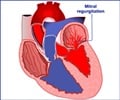There is no bad time of the day or week or year to have elective coronary artery bypass graft surgery, according to a review in the October issue of the journal Anesthesiology.
There is no bad time of the day or week or year to have elective coronary artery bypass graft surgery, according to a review in the October issue of the journal Anesthesiology. The study also reviews potential adverse effects associated with the timing of a patient''s heart surgery
Research indicates that sleep deficits, natural body rhythm disturbances, and prolonged duty all reduce performance of drivers and pilots. This study''s authors tested the theory that the same adverse effects may impact hospital personnel performance. Hospital personnel often work off-hours and pull long shifts. The study investigators thus expected surgical outcomes to be worse at the end of the day and at the end of the week when personnel are likely most fatigued. Similarly, outcomes might be worse in July when new resident physician trainees, fresh out of medical school or newly promoted to perform more demanding duties, start working.Coronary artery bypass grafting was studied because it is the most common heart surgery, and because there are well-established protocols for the procedure. The analysis was limited to elective operations because emergency procedures are inherently riskier and are often performed in patients with additional medical problems.
"We started the study believing that timing was likely to influence outcome. If so, hospitals could intervene with precautions to improve patient safety during high-risk periods," said Allen Bashour, M.D., the study''s senior investigator. "However, our results showed that serious complications were rare and that the timing of elective surgery did not influence the outcome."
About the Study
Researchers analyzed the outcomes of 18,597 coronary artery bypass graft operations performed at the Cleveland Clinic from January 1, 1993, to July 1, 2006.
Each case was examined for the start time, day of the week, month of the year, and even the phase of the moon. The results were analyzed on the basis of six major complications, defined by the Society of Thoracic Surgeons, including:
1. In-hospital death
2. Heart attack
3. Neurological complications or death related to neurological causes
4. Infection-related complications or death
5. Renal failure requiring dialysis
6. Ventilator support beyond 72 hours.
The investigators simultaneously examined the phase of the moon because it is widely believed (without much evidence) that accidents and emergency department visits are increased at full moon.
Advertisement
The combined complication and death rates were 4.8 percent and 1.4 percent, respectively. The fraction of patients experiencing complications or death was similar each weekday, each month of the year, and during each phase of the moon. None of the time factors significantly affected the overall outcomes.
Advertisement
For more information, visit the journal Anesthesiology Web site at www.anesthesiology.org.
Anesthesiologists: Physicians providing the lifeline of modern medicine. Founded in 1905, the American Society of Anesthesiologists is an educational, research and scientific association with 43,000 members organized to raise and maintain the standards of the medical practice of anesthesiology and improve the care of the patient.
For more information visit the ASA Web site www.asahq.org.
Source-Newswise
RAS














